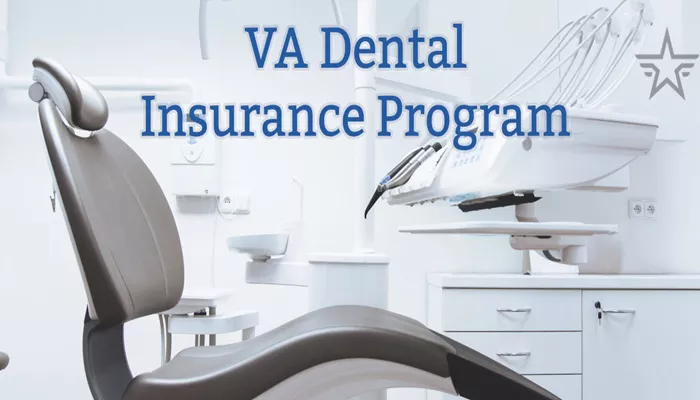VA Dental Insurance refers to dental coverage options available specifically for veterans and eligible beneficiaries through programs linked to the U.S. Department of Veterans Affairs (VA). While the VA provides comprehensive dental care to certain eligible veterans, many others may not qualify for direct VA dental treatment. To help these veterans access affordable dental care, the VA Dental Insurance Program (VADIP) offers discounted private dental insurance plans. These plans are designed to supplement or provide dental coverage for veterans and their families who are enrolled in VA healthcare or CHAMPVA (Civilian Health and Medical Program of the Department of Veterans Affairs).
Types of VA Dental Insurance Plans
The VA Dental Insurance Program is administered by two major insurance providers: Delta Dental and MetLife. Each offers multiple plan options tailored to different dental care needs:
Delta Dental Plans:
Enhanced Plan: Best for routine dental care such as cleanings and exams.
Comprehensive Plan: Suitable for those needing additional dental work beyond routine care.
Prime Plan: Offers maximum coverage, especially for major dental procedures.
MetLife Plans:
Standard Option: Covers in-network cleanings, X-rays, and exams at no cost, with moderate coverage for other services.
High Option: Includes all benefits of the standard plan plus additional protection for unforeseen dental costs, higher annual maximums, and coverage for major procedures including orthodontics.
These plans cover a broad range of dental services, including preventive care, restorative treatments, oral surgery, emergency dental care, and some medically necessary cosmetic procedures.
Advantages of VA Dental Insurance
VA Dental Insurance offers several benefits for veterans and their families:
Discounted Premiums: Plans are available at reduced costs compared to typical private dental insurance due to VA-negotiated rates.
Wide Range of Coverage: From routine cleanings and exams to complex procedures like root canals, crowns, and oral surgery.
No Enrollment Season: Veterans can enroll at any time without waiting for an open enrollment period.
Multiple Plan Options: Allows veterans to choose coverage levels that fit their dental needs and budget.
Large Provider Networks: Both Delta Dental and MetLife have extensive networks, making it easier to find in-network dentists and reduce out-of-pocket costs.
Flexibility: Coverage is available across the U.S. and its territories, providing access regardless of location.
Coverage of VA Dental Insurance
VA Dental Insurance typically covers the following dental services:
Diagnostic Services: Oral exams, X-rays, and screenings to detect dental issues early.
Preventive Care: Routine cleanings, fluoride treatments, and sealants to maintain oral health.
Restorative Procedures: Fillings, crowns, root canals, and other treatments to repair damaged teeth.
Oral Surgery: Tooth extractions, bone grafting, and other surgical interventions.
Emergency Dental Care: Treatment for dental emergencies such as severe pain or trauma.
Orthodontics: Coverage for medically necessary orthodontic treatments, especially for children up to age 19.
Reconstructive Services: Procedures following trauma or illness, sometimes including medically necessary cosmetic treatments.
Coverage levels and waiting periods may vary depending on the specific plan chosen. For example, some plans cover preventive services at 100% with no waiting period, while basic and major services may have waiting periods ranging from 6 to 18 months.
Related Costs of VA Dental Insurance
Costs associated with VA Dental Insurance plans include:
Monthly Premiums: The average premium for dental insurance in Virginia ranges from about $21 to $58 per month depending on the plan and coverage level. Discount dental cards may cost as low as $12.95 per month.
Deductibles: Most traditional dental insurance plans have deductibles, typically ranging from $25 to $100 per individual, with family maximums also applying.
Co-pays and Coinsurance: Depending on the service and plan, insured individuals may pay a percentage of the cost, such as 20% for basic services or 50% for major procedures.
Annual Maximums: Many plans limit the total amount they will pay per year, often between $1,000 and $2,500, though some higher-tier plans offer no maximum for certain services.
Out-of-Network Costs: Using dentists outside the network generally results in higher out-of-pocket expenses, so staying in-network is recommended for cost savings.
Advantages and Disadvantages of VA Dental Insurance
Advantages
Affordable Access: Provides discounted dental insurance options specifically for veterans and their families.
Comprehensive Coverage Options: Plans range from basic preventive care to extensive restorative and surgical procedures.
Flexibility in Enrollment: No limited enrollment periods; veterans can sign up anytime.
Large Provider Networks: Easier access to in-network dentists reduces costs.
Coverage Nationwide: Available throughout the U.S. and territories.
Tailored Plans: Veterans can select plans based on their dental health needs and financial situation.
Disadvantages
Eligibility Restrictions: Only available to veterans enrolled in VA healthcare or CHAMPVA beneficiaries, limiting access for some veterans.
Waiting Periods: Some plans impose waiting periods for basic and major dental services.
Annual Limits: Many plans have annual maximum benefit caps, which may not cover extensive dental work fully.
Deductibles and Co-pays: Out-of-pocket costs still apply, which may be significant depending on the plan and services used.
Limited Cosmetic Coverage: Cosmetic procedures are generally covered only if medically necessary.
No Open Enrollment: While enrollment is flexible, lack of a formal open season may make it harder to compare plans annually or make changes easily.
Conclusion
VA Dental Insurance programs offer a valuable resource for veterans seeking affordable dental coverage beyond what the VA directly provides. By understanding the types of plans available, coverage details, costs, and pros and cons, veterans can make informed decisions to maintain their oral health with financial peace of mind.

